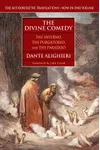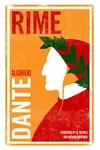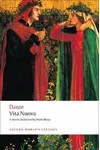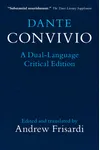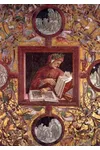Picture an Italian poet who spun an epic journey through the afterlife, weaving love, loss, and redemption into a masterpiece that still captivates the world—meet Dante Alighieri! Born in 1265 in Florence, Dante’s Divine Comedy redefined literature, blending theology, philosophy, and vivid imagery into a timeless tale that invites readers to ponder the human soul.
Exiled from his beloved city due to political turmoil, Dante turned his personal struggles into poetic gold. His work, written in the Tuscan dialect, helped shape the Italian language itself, earning him the title 'Father of the Italian Language.' Let’s dive into the life, works, and lasting legacy of this literary giant.
The Making of Dante Alighieri
Born in Florence in 1265, Dante grew up in a city buzzing with political and cultural energy. His early life was marked by his love for poetry and his encounter with Beatrice Portinari, a muse who inspired much of his work. Dante studied rhetoric, philosophy, and theology, laying the groundwork for his intellectual depth. By his 20s, he was active in Florence’s political scene, but his alignment with the White Guelphs led to his exile in 1302, a turning point that fueled his creative output.
Dante Alighieri’s Unforgettable Works
Dante’s magnum opus, the Divine Comedy, is a three-part epic poem—Inferno, Purgatorio, and Paradiso—that chronicles a soul’s journey through Hell, Purgatory, and Heaven. Written in terza rima, its vivid imagery and moral complexity make it a cornerstone of Western literature. Inferno, with its chilling depictions of sinners’ punishments, remains the most famous, introducing iconic figures like Virgil and the doomed lovers Paolo and Francesca.
Beyond the Divine Comedy, Dante wrote La Vita Nuova, a collection of poems and prose celebrating his love for Beatrice. This work blends courtly love with spiritual devotion, showcasing his lyrical finesse. His philosophical treatise, Convivio, and the political essay De Monarchia reveal his intellectual range, tackling governance and human happiness. Dante’s use of the vernacular over Latin was revolutionary, making literature accessible and shaping modern Italian.
His style is both grand and intimate, weaving cosmic themes with personal emotion. Whether describing Hell’s torments or Heaven’s bliss, Dante’s precision and imagination create a world that feels alive, inviting readers to reflect on morality, faith, and redemption.
Why Dante Alighieri Matters
Dante’s influence is colossal. The Divine Comedy not only shaped literary traditions but also inspired art, music, and philosophy for centuries. From Michelangelo’s frescoes to modern novels, his vision of the afterlife resonates. By writing in the vernacular, he democratized knowledge, paving the way for the Renaissance. His exploration of human nature—flawed yet capable of transcendence—remains universally relevant, captivating readers across cultures.
Today, Dante’s legacy endures in academic studies, translations, and even pop culture, where his Hellish imagery pops up in films and games. His ability to blend the personal with the universal ensures his place as a literary titan whose words still burn brightly.
- Birth: May/June 1265, Florence, Italy
- Key Works: Divine Comedy, La Vita Nuova, De Monarchia
- Notable Fact: Known as the 'Father of the Italian Language'
Ready to explore Dante’s world? Grab a copy of the Divine Comedy and lose yourself in his breathtaking journey through the afterlife!
